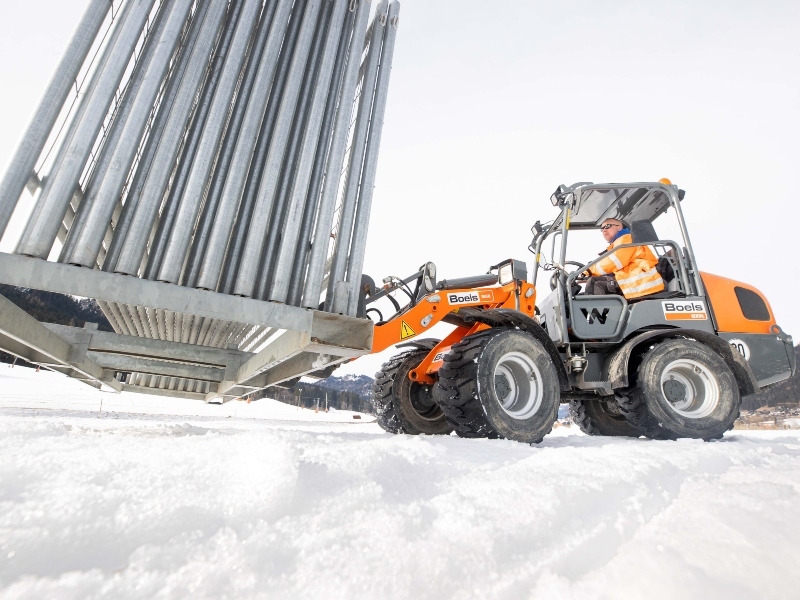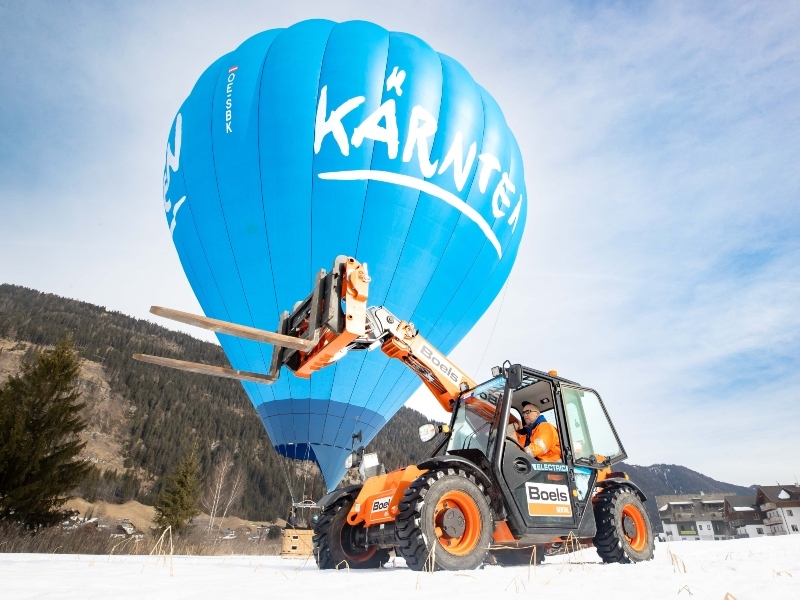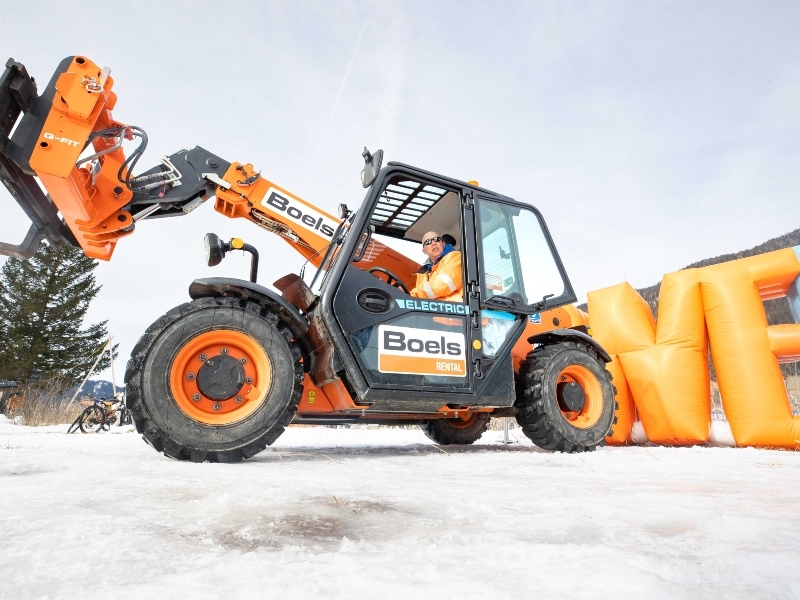Modern lithium ion batteries are sensitive to large fluctuations in temperature. If you’re using electrical equipment or ECO machines, it can feel like a battle against ground frost, snow and ice. Want to start the next day’s work on a full charge? Don’t leave your equipment out in the cold – keep it warm and dry. Here are some useful tips from us to help you look after your electrical equipment during the winter months.

Lithium ion batteries are incredibly powerful, and that’s the main reason we use them in our equipment. They’re particularly effective in larger ECO machines. However, for all their strength, lithium ion batteries have a weak spot: they struggle to cope with big changes in temperature. That means you need to be braced for heatwaves in the summer and prepared for frost in the winter. Low-temperature conditions rapidly reduce battery capacity, affecting performance. The battery will discharge much faster than usual, often without you realising, meaning you may have to plug it in before lunch. Add to this the fact that cold weather can significantly increase charging times, and you’ll find yourself forced to take an extended break. Not what you need on days with urgent jobs. What can you do to avoid this scenario?
Avoid big temperature fluctuations
We don’t like extreme cold – batteries are no different. Cold has the potential to damage cells and reduce the battery’s lifespan. Given the price tag on lithium ion batteries, that’s something to avoid at all costs. Diesel equipment isn’t usually left out overnight and unprotected during the winter months, as we know this can damage hydraulics and other vulnerable parts. In the case of electrical equipment, it’s the battery system that requires protection. Not just cold but also moisture can damage batteries, so it’s best to shield them from rain, snow and ice whenever possible.
To sum up: tip #1 is to minimise how often you leave electrical machines and tools outside overnight. If it’s really cold, follow the same rule during the day – especially if machines are unused for hours at a time.
Tip: store electric machines and tools inside if possible

Store batteries in a warm and dry place
Tip #2 is our most effective piece of advice: store batteries in a warm and dry place. By ‘warm’, we mean temperatures between 5 and 20°C. That’s roughly the temperature in a well-isolated shed or garage or in a heated workspace.
For electric tools: store batteries in an insulated bag or case, or place them in the inside pocket of your work overalls, so that your body heat keeps the battery warm. Pro tip: briefly charge the battery just before putting it in storage, to give it a boost of internal heat. You might be tempted to store tools in your van overnight – don’t! Temperatures inside your vehicle can easily drop below zero, so you’ll still need to protect your equipment.
For electric machines: if you’re unable to store them inside, you may be able to cover the battery in insulation wrap. Some machines have a removable battery. If so, we recommend storing the battery inside. A number of larger electric machines have lift-out battery packs, which you can store overnight in a shed or garage.
Tip: To optimise your battery’s lifespan, never charge it more than 90%.

Several months without charging
Well-maintained lithium ion batteries can last a few months to half a year without charging. However, the amount of charge a battery can hold will diminish over time. Cue tip #3: charge batteries to 50% before putting them into long-term storage. Check them every two to three months. If their capacity drops to below 30%, our advice is to charge them – but not to 100%! To maximise your battery’s lifespan, never charge them more than 85-90%. Tip #4: If your machine or tool has removable batteries, you should take them out before putting them in storage. Do exercise some caution, however. If high voltages are involved, request support from a specialist.
Last but not least, tip #5: handle batteries with care. Don’t throw them, don’t place heavy items on them, don’t drop them – be gentle. Damaged batteries have an increased risk of an internal short circuit and, in the worst instance, catching fire.

